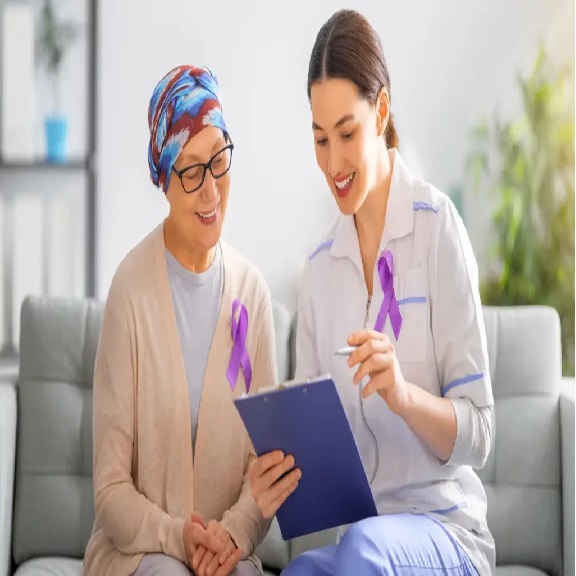
Oncology Care - Your Partner in the Fight Against Cancer
- Use Diagnostic tools for early cancer detection.
- Chemotherapy, radiation therapy, immunotherapy, and targeted therapy.
- Post Surgery Support
- Nutritional guidance, and counseling.
- Helping you transition to a fulfilling life as a cancer survivor.
- We provide the highest quality oncology care
- Our multidisciplinary team of oncologists, nurses, surgeons, and support staff
- Enhancing Quality of Life and Comfort
- Breast cancer, lung cancer, prostate cancer, and more
- Support for people who are in the last months or years of their life.
Services for Oncology Care
Treatment Options: Explore the various treatment modalities available, including surgery, chemotherapy, radiation therapy, immunotherapy, and targeted therapy.
Supportive Care: Discover our comprehensive supportive care services, such as pain management, nutritional guidance, and counseling.
Survivorship Care: Find out how we continue to care for you even after successful treatment, helping you transition to a fulfilling life as a cancer survivor.


Health Tips & Info
How can I manage cancer-related fatigue?
To manage cancer-related fatigue, it’s important to stay physically active, maintain a balanced diet, get adequate rest, and discuss your symptoms with your healthcare team. They may suggest medications or therapies to alleviate fatigue.
Are there specific dietary recommendations for cancer patients?
A balanced diet rich in fruits, vegetables, lean proteins, and whole grains is generally recommended for cancer patients. It’s important to consult with a registered dietitian to tailor your diet to your specific needs.
What financial resources are available to help with the cost of cancer treatment?
There are various financial resources available, including health insurance, government programs, nonprofit organizations, and patient assistance programs offered by pharmaceutical companies. Social workers at your healthcare facility can help you navigate these resources.
What can I do to reduce the risk of cancer recurrence after treatment?
Reducing the risk of cancer recurrence often involves maintaining a healthy lifestyle, including regular exercise, a balanced diet, and not smoking. It’s crucial to follow your healthcare team’s recommendations for follow-up care and screenings.
